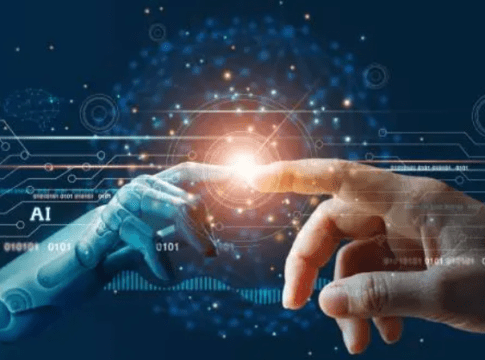The technological horizon is ablaze with the promise of new advancements in artificial intelligence. As we stand on the brink of transformation, the emergence of AI “agents” is set to redefine the way we interact with technology. These autonomous models, capable of performing tasks and making decisions independently, signal a profound shift in the digital landscape.
In an exclusive dive into the world of AI agents, we explore Anthropic’s latest innovation: the Claude 3.5 Haiku model. This groundbreaking AI model offers users a tantalizing glimpse into the future, where computers can be commandeered by AI to carry out complex tasks autonomously. As we witness this AI evolution, it’s essential to understand the five progressive levels of AI capabilities, as delineated by OpenAI CEO Sam Altman unraveling the Five Levels of AI as follows;

1. Chatbots: The most familiar AI models, which have already revolutionized customer service and communication with their ability to understand and respond to human queries.
2. Reasoners: Taking it a step further, these AIs are capable of logical reasoning and decision-making, paving the way for more sophisticated applications.
3. Agents: The focus of our exploration, these AIs can autonomously manage tasks like booking travel or organizing schedules. They are trusted to use tools, navigate the web, and manage resources without human intervention.
4. Innovators: These AIs will be capable of generating new knowledge, potentially leading to breakthroughs in science and technology.
5. Full Organizations: Envisioned as AI systems that operate entire organizations with minimal human oversight, a concept rapidly transitioning from fiction to reality.
Anthropic’s Bold Leap
Anthropic’s latest model, Claude 3.5, heralds a new era as it introduces “computer use” capabilities, allowing AI to interact with digital environments seamlessly. This feature enables the AI agent to perform tasks such as scheduling activities or deploying code, mimicking human interactions with computer interfaces.
Anthropic’s team emphasizes the novelty of this approach, highlighting that previous models required custom environments tailored to AI. Now, Claude can integrate into existing software, using it as naturally as a human would. However, this capability is currently in its nascent stages, limited to developers with API access.
The Road Ahead: Opportunities and Challenges
The introduction of agent-level AI presents both exciting possibilities and significant challenges. Experts like Dr. Jane Doe, from the University of Technology, caution about the potential risks of granting AI such extensive access to personal and professional data. “While the productivity gains are undeniable, we must navigate the ethical implications with care,” she warns.
Statistics from the Global AI Adoption Index indicate a 30% increase in automation-related job displacement since 2020, a trend expected to accelerate with the widespread deployment of AI agents. As industries adopt these technologies, the balance between innovation and employment must be carefully managed.
In conclusion, the advent of AI agents like Claude 3.5 marks a pivotal moment in our digital journey. As we harness the power of these autonomous entities, the potential for innovation is limitless. Yet, as this transformative technology becomes integral to our lives, it is crucial to remain vigilant and prepared for the societal shifts it will inevitably bring.


